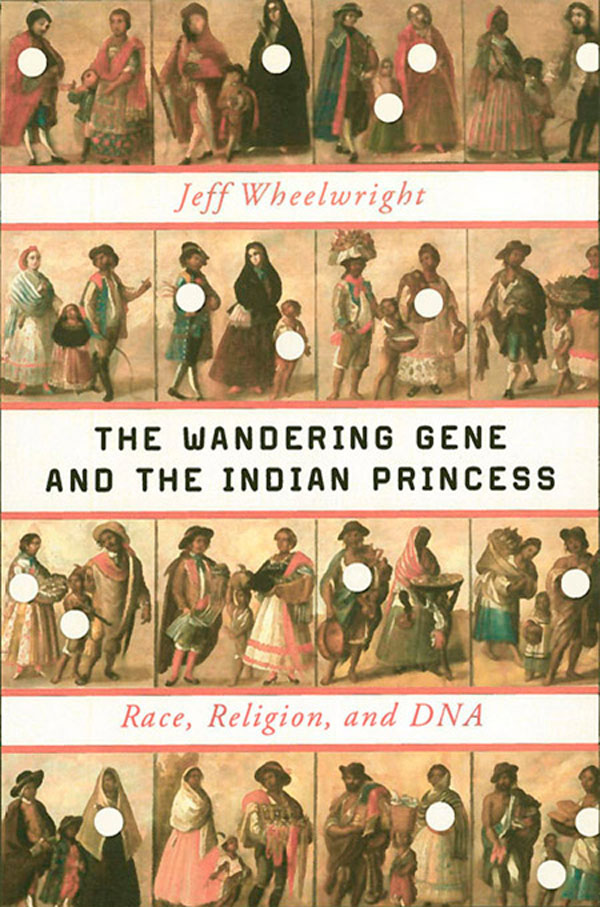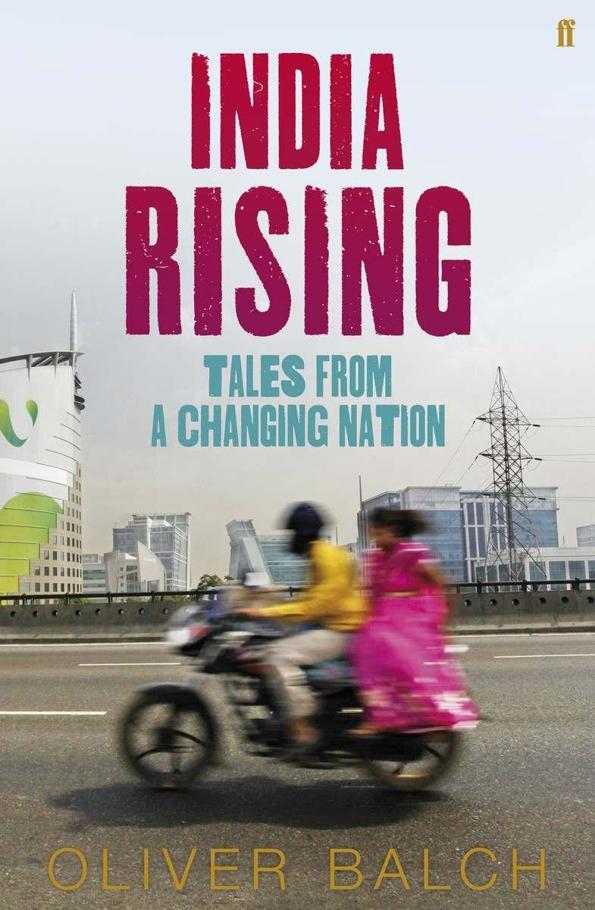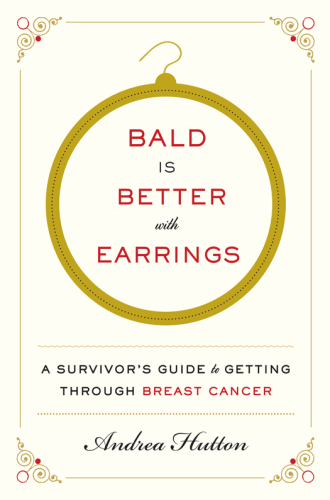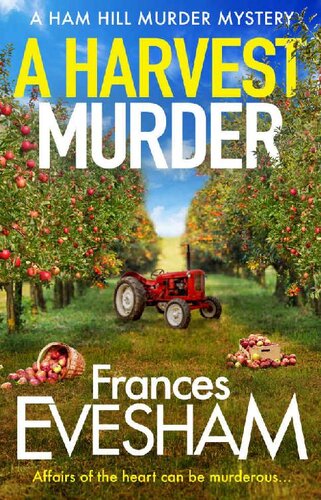oleebook.com
The Wandering Gene and the Indian Princess: Race, Religion, and DNA de Wheelwright, Jeff
de Wheelwright, Jeff - Género: English
Sinopsis
A brilliant and emotionally resonant exploration of science and family history.
A vibrant young Hispano woman, Shonnie Medina, inherits a breast-cancer mutation known as BRCA1.185delAG. It is a genetic variant characteristic of Jews. The Medinas knew they were descended from Native Americans and Spanish Catholics, but they did not know that they had Jewish ancestry as well. The mutation most likely sprang from Sephardic Jews hounded by the Spanish Inquisition. The discovery of the gene leads to a fascinating investigation of cultural history and modern genetics by Dr. Harry Ostrer and other experts on the DNA of Jewish populations.
Set in the isolated San Luis Valley of Colorado, this beautiful and harrowing book tells of the Medina family's five-hundred-year passage from medieval Spain to the American Southwest and of their surprising conversion from Catholicism to the Jehovah's Witnesses in the 1980s. Rejecting conventional therapies in her struggle against cancer,...
Libros Recomendados - Relacionados
Reseñas Varias sobre este libro
The topics here are fascinating. A young woman dies from a very aggressive form of breast cancer. Many of her extended family members have had breast or ovarian cancer too. The family discovers it is linked to a particular mutation in the so-called breast cancer gene. One that is specifically Jewish. But the family is Hispano, descendents of Spaniards who came to the American Southwest centuries ago, and intermixed with native populations. With no known Jewish ancestry.
How this gripping story turned into the drek that is Wheelwright's book, I don't know. He took a lot of notes--notes from book research and from visits and interviews--mixed them randomly, then fleshed them out into purple prose. In other words, he skipped a few editing steps (or his publishers did). Maybe they thought the subject matter was so compelling that it would stand on its own? It almost does, but, ultimately, it's unsatisfying.
The other unfortunate part is the author clearly diss the main subject's religion and disagrees with her medical choices (to use alternative medicine and not lose her breasts to surgery). To the point that he makes fun of her and her family members who share these things. He implies that she died because of her choices and not, as the family believes, because the cancer was caught too late. It's not just once or twice; the author's biases permeate the book. Since the book is organized randomly, he has opportunities to denigrate this dead young woman, and her family, dozens of times (and he never passes up such an opportunity). He even reveals achingly personal information that has zero bearing on the topics of the book, information that will hurt the family who is still living.
Honestly, the more I think about it, the more I want to give this book a one-star rating. But I'm keeping it at two-star because the topics are very interesting and there is enough information in the book to lead me to better sources.genealogy genetics history ...more3 s Sarah373 5
In short: interesting subject matter, not the best read, however.
I almost put this book down at page 140 beause I thought the organization of the book was terrible and the author had not yet gotten around to telling the main human interest story of this book--Shonnie Medina's fight with cancer. The Immortal Life of Henrietta Lacks is a much, much better written book in this genre, which I would call science/genetic/medical case study.
Another irritation was the lack of quotation marks. I was annoyed by page 20 with that inexplicable editorial decision. I can take no quote marks in some *literary* works, but I don't understand it in nonfiction. It was confusing figuring out who was speaking and when they stopped speaking--this is what punctuation does. The reader shouldn't have to work so much.
I often felt the author either poorly chose the scope of this book (you don't want to talk about eugenics? do you need to try to cover the histories of all the peoples in this book?) or just wasn't able to organize it well. The last few chapters were an improvement.
Summarizing a couple thousand years of Jewish history and diaspora in about four pages made me roll my eyes, and other GoodReads reviewers I've read, I am baffled by the suggestion that Jehovah's Witnesses and Orthodox Jews are the most similar religious minorities in the U.S. If I were the editor or copy editor I would have queried that! science2 s Kristen129 5
This book was a really good New Yorker article that spiraled out of control and ended up being a whole book. Don't get me wrong; it would have been one of those super long ones articles that are really fascinating and then you feel a bit self-congratulatory at the end of it for having read it and learned something. The pace of this book is just way too leisurely (OMFG the unending descriptions of the freaking mountains!) -- it is a very interesting story, you just wish he would hurry the frig up and get to it already, though.2 s Kallie542
My thesis was about Hispanas. Wheelwright does a culturally sensitive, historically accurate job writing about Hispanos in general, and their history. I also learned a lot I didn't know about the genetic history of Hispanos, and Jehovah's Witnesses and the parallels with Judaism (which may be a stretch; not sure). Someone objected to him referring to Native Americans as Indians and I wouldn't call them Indians either but from what I have heard/read, many Native Americans do not consider the term offensive though it's far better to refer to people by their tribal affiliation. I too questioned organization, but wasn't much bothered by Wheelwright's choices and d his writing well enough. What's important to me is the information about Hispano contemporary culture, history (genetic and narrative), and the book is very good on those accounts.cult-studies history1 Sam Dye219 4
This is a ground breaking book in the sense that it explores multiple areas that have not previously been given open expression. It took the author 10 years to gather this material and more importantly he had to build relations of trust with disparate groups to pull it together. The intimate coverage of the Hispano Jehovah Witnesses as contrasted to their previous Catholic life is done excellently. The discussions of the competing Jewish approaches to genetic screening is very thorough and sensitive. The discussion of Hispano reaction to the knowledge of an important breast cancer gene that had a Jewish origen in their midst is done perfectly. There is a documentation of a problem with our health care system in that when there is a substantial percentage of the people without insurance who don't establish relationships with physicians and then if there is a serious problem that comes up there is no relationship of trust to carry that person through difficult times. The book accurately, without prejudice, describes the futility and cost of treating cancer with homeopathic methods. There is coverage of the personal effect of the continuing issue of land usage where there has been previous land grants.
So Jeff Wheelwright weaves multiple human faces and stories around the cold genetic reality of BRCA1,185delAG. Bravo!1 Naomi Young259 17
Enjoyed this very much, and if you pondering fate, identity, history and faith along with a strong does of pure science, you will too.
The wandering gene of the title is the specific variant of the BRCA1 gene that is more prevalent in individuals with Jewish ancestry; the Indian princess is a New Mexico woman, Shonnie Medina, from a Catholic background, one of Jehovah's Witnesses, who died from cancer sparked in part by that mutation.
Author Jeff Wheelwright uses Shonnie's story as a tragic touchstone to which he returns as he weaves together a brief history of genetic research and ethnic identity, and the factors that, ironically, make Jewish genetic variations easier to track and document.
I have knocked one star off the review because of an odd stylistic choice of the author (and it's not a fluke of the electronic version; it was the same in the print): he doesn't punctuate direct quotations from his interview subjects, which can make deciphering some sections of the book (especially those with more than one "speaker."
In spite of that, READ THIS BOOK. It's engrossing and moving and educational and leaves you thinking about ideals and ethics. What more could you want?? 2013 aclib1 Sara1,168
Though this type of thing is right up my boyfriend's alley, I personally know very little about genetics and how genes are expressed and how they are traceable, apart from what I've gleaned from examining my own family history. I enjoyed this book because it was able to bring a historical and personal perspective to the science of genetics, tracing a particular genetic mutation through one woman's family, through her family history and the events which perpetuated her ancestors to migrate. I felt that the author did a good job blending the different topics together, making an interesting and readable book out of them, although I am not sure how much the science was simplified for a general audience. history nonfiction science1 Scottsdale Public Library3,336 287 Read
Author Jeff Wheelwright delves eloquently and with sensitivity into the mystery of why a young Hispanic woman from the four corners region of the country and other members of her extended family are struck down by an aggressive form of cancer known to predominantly afflict women of Jewish descent. Wheelwright gathers the genetic scientists and genealogists at the forefront of the race to save these womens lives and find answers to how race, religion and DNA impact our lives. Recommended for readers with an interest in scientific mysteries and fans of The Immortal Life of Henrietta Lacks. -Amy O.-
adult nonfiction1 Roger70 4
Excellent book on the story of a New Mexico valley interweaving the genetic issues with BRCA in a close community. A very touching story that I enjoyed a great deal.non-fiction science1 Nina1,615 12
Leaving aside for a moment the author's constant and irritating use of the term "Indian" instead of "Native American" -- he explored why a genetic defect associated with Jewish ancestry is so prevalent in a Hispanos community in southern Colorado where the mixed blood is about 80% Spanish Catholic and 20% Native American, with a little dash of African sprinkled in. The cause can be traced back to the Spanish Inquisition, when many Jews took refuge in converting to Catholicism. Some did wonder why their families always lit candles on Friday nights..... The book was padded with overly romanticized, flowery language that could have been taken out and shortened the book considerably without missing a beat. Sara10
This book is one of the most complex and interesting stories I have read yet. The book intertwines the science of the genetic BRCA-1 and BRCA-2 genes which lead to breast cancer, and the rich history of Spanish Jews in the Southwest Unites States. The author weaves together the history and and culture with science incredible elegantly. The book investigates who a particular gene, the BRCA gene, is so rampant in part of the Southwest. In many cases, the women who inherited the gene believed themselves to be Mexican-American when in reality their Jewish ancestors were forced out of Spain during the Reconquista. The gene is rampant among Spanish Jews living in Spain and has found its way over to America through generations. Lisa Margarite 54 2
This book was so frustrating. I enjoyed the history and genetics, but desperately wanted to give the books "heroine" a good thrashing, and drag her ass to chemo,radiation, and the breast surgeon for a mastectomy. The author intended to present her as strong and determined. She was a brat, living in her own world. Amy Wayman5 1 follower
I could not finish this book due to the disorganization and lack of appropriate grammar. I gave it two stars instead of one because the information is interesting. Alison5 6
Fascinating info about a lot of interesting topics, but had to sludge through some not-great writing in various parts. In the end, very worth it to me. Ietrio6,688 25
An excellent piece of detective work, Wheelwright has spoken with every descendant up to the 1500s. A-mazing!junk Craven22
Interesting book about genes in a South Colorado community where cancer is rampant, also the question of "crypto Jews". Angie323 13
The author irritated me because he kept relying on stereotypes (especially of Jehovah's Witnesses) as well as repeating quotes from people whom he had interviewed that reveal a Jewish prejudice (even though they were descended from them)! Why he chose this young woman's sad story to discuss the existence of Crypto-Jews in New Mexico and our Southwest is beyond me--how the women in her family deal with the traditions from their Catholic background, their Indian ancestors, and their newly found religion was a much more interesting story. And he was able to explain genetics and the scientific/sociological studies of Amnerican Jews and Crypto-Jews quite well. But that explanation doesn't begin in earnest until 1/2 the book has gone by.
An opportunity to tell a fascinating story was completely missed here. The story itself of the genetics is interesting enough to merit 3 stars.nonfiction Margaret SankeyAuthor 9 books216
Look Dornbusch, Colorado Conversos! From a solid science writer, an expanded piece on the prevalence of BRCA1 mutations in the Jewish converso population who emigrated to the American southwest, with side explorations on the cultural intersections of religion, genetics and geography, including the Babylonian captivity, the genetic bottlenecks of 18th century Catholic communities, nuns and breast cancer studies, poverty and insurance, Jehovah's Witnesses and their conflict with the florid Catholicism of festivals and Santa Muerte (a figure very poignant in a town where huge numbers of women die young from cancer), folk medicine vs. genetic counseling and issues of identity, parentage and responsibility. J L's Bibliomania378 10
This book is a well researched social history of the discovery of the BRCA gene mutations in the Hispanos of the San Luis Valley of Colorado.
Unfortunately, the book dragged. I wanted to know more, but kept putting this down in favor of other books.
My husband got sick of my repeated lament that the scientist in me wanted more science. In particular, the book lacks a Medina family tree that showing gene and disease status. I would have been satisfied with a diagram that anonymized the entries if the Medina family wanted to protect themselves and family members that had not specifically participated in the writing of the book. While who was tested, and what were the results are sprinkled throughout the book, it was hard to keep track of without a diagram. jewish non-fiction Austin Larson165 10
Wheelwright does impressive work tying in several interrelated story lines into an engaging book. The central story is that of Shonnie Medina, a young hispanic woman who dies of breast cancer in southern colorado. She's a carrier for the BRCA mutation that's gotten much publicity in recent years. It turns out that the specific mutation she has only exists in Jews. The author uses that discovery - made in 2003 - to trace the history of the Sephardic Jews, the Spanish inquisition, the settlement of the american southwest and subjugation of the indians up to the more modern history of the region. Yasmin140 1 follower
This book was at its best when talking about genetics or history. It's weakest parts were the contemporary chapters that tried to wax poetic about the landscape or make some deep observation about an average family and woman who fell victim to the cancer gene (these seemed to go on forever). Overall, it was interesting, but it could have been told in three or four chapters.
Also, and I don't remember why this is because I finished reading the book a few weeks ago, but I got the sense that the author had a slight dis of Jews and really didn't know anything about Jews or Judaism. Ah, well. He tried. Marge693 1 follower
I enjoyed learning from so many areas when I read this book. First of all the genetics studies were amazing. The world of genetics has expanded to unbelievable areas of understanding and fascinates me continually. The studies of Jewish genetics and the Biblical history overlap was another area I found I wanted to know more about. Learning about the Catholic and Jehovah Witness and especially the evolution of the Catholic church in this specific geographic area was another area of learning for me. Kerry496 1 follower
While this book has some really good information, some of which is also very interesting, at times it was very difficult to know just where the author was headed. His punctuation style made me wonder if he had ever studied writing or grammar, or if he had been his own editor, and then I read that he had been the science editor for Life Magazine. I think the book lacked organization and needed some stronger editing. Changing from first person to third person narration in one paragraph without the benefit of quotation marks made some areas very difficult to follow. Wendy418 53
I really enjoyed this book. I love it when I learn new things while being entertained. This book is full of extremely interesting scientific and historical information, woven through a story of real people that were easy to identify with. Breast cancer is a devastating disease, yet the scientific advances are encouraging.
I want to learn more about genetics and the migratory history of the people of the world. I also would to have a DNA test to determine my percentages of ancestry. It's fascinating stuff!non-fiction Vaughn231 14
This was an interesting exploration of the possibilities of unexpected DNA in Hispanic populations of Southern Colorado. Having been raised in this geographical area, I appreciated the deeper understanding of the culture, the history, and the attitudes of some of the people. In particular I gained greater insight into the unique contributions of the Penitente sect to the Hispanic population and attitudes.
There are several possible explanations for the Breast Cancer Gene found amongst this population including that advanced by the author (Sephardic Jewish DNA from Spain). Michelle2,410 57
Ugh. This story might have had interest, but it was so poorly written I could barely bring myself to finish it. As it is, I skimmed the most boring parts. This was disorganized, crazily, floridly overwritten, disjointed and at times almost nonsensical. (Pages and pages on sunflowers???? Stating that Jehovah's Witnesses and Orthodox Jews are more a each other than any other two religious groups?) Too bad.science-issues Susan HesterAuthor 1 book3
Interesting story of how our genetics, more history than we know, follow us for centuries. Breast and ovarian cancer can come from an inherited gene mutation, and there is a higher than normal number of such cases in the San Luis Valley, Colorado. It was an astonishing discovery how the genetic link was made, and this book details how it traveled from the Middle East and Europe to the Americas. Mj56
I did not finish the book and do not plan to do so. Though I am certain the information about the BRCA breast cancer gene us interesting, the author has not gotten to that subject in the first half of the book. Surely there is a better way to provide the information necessary to understand whatever the author has to say about the young women who us apparently the subject if the book Darlene15 1 follower
Though the scientific lingo was usually well parsed and easy to follow, some of it became tiresome near the end of the book. However I am now 'officially' hooked on DNA and genetics especially as they relate to genealogy. Smellsofbikes253 20
Autor del comentario:
=================================












